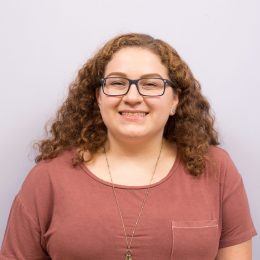
President-elect Donald Trump has proven in the past two weeks that some of his campaign promises and ideologies might not make it to the White House. However, we have already seen the repercussions of his hateful rhetoric explode across the United States.
It has become clear that bigoted Trump supporters are the biggest danger to marginalized groups, as numerous heinous acts have already occurred. It is important now more than ever to understand why certain people are more vulnerable than others and how intersectionality determines who will feel the most damaging effects of a Trump presidency.
Kimberlé Crenshaw, a U.S. civil rights advocate and professor at Columbia Law School and UCLA School of Law, coined the term “intersectionality” in the 1980s. It is defined as the interconnected nature of social categorizations such as race, class and gender as they apply to an individual or group, regarded as creating overlapping and interdependent systems of discrimination or disadvantage.
In other words, people have multiple identities, and the intersection of these identities causes even harsher effects of oppression and discrimination. It is important to acknowledge that although many people will feel the harmful effects of a Trump presidency in some way, those who are a part of multiple marginalized communities will feel the effects on a larger scale.
Systematic oppression has led to the injustice and inequality that plagues marginalized groups in the United States. Trump projecting his hateful rhetoric toward women, people of color, immigrants, people with disabilities and members of the LGBTQ community — just to name a few — perpetuates this oppression. How can a person with multiple identities safely exist when each aspect of their identity has been denounced and berated by the person who is going to be the leader of the free world?
In a recent TED talk led by Crenshaw, she spoke about how framing people’s identities is necessary in order to understand how oppression impacts them. She said, “Without frames that allow us to see how social problems impact all the members of a targeted group, many will fall through the cracks of our movements, left to suffer in virtual isolation.” This explains what the condition of the United States could be under a Trump presidency. Unless we understand how intersectionality contributes to further oppression and isolation, and we take action toward combating injustice, marginalized groups will fall deeper through the cracks.
It is important to understand that oppression is all-encompassing and it affects people even in places that are supposed to be safe, like college campuses. We must make an effort to make our campus aware of intersectionality and work diligently to make safe spaces available to targeted groups. We must denounce Trump’s rhetoric and his White House appointees who will continue to perpetuate it. It is disgraceful that someone who is supposed to be a staunch defender of U.S. values is the one denying liberty and justice to all.
Emily Kaufman is a sophomore majoring in English.


